RobotLAB Blog
Everything You Need To Know About Robotics in Businesses
TeacherCast Interview: Learn How RobotsLAB is innovating STEM Education
- 0 Comments
- Apr 11, 2014 10:30:00 AM
- Posted by Anna Sandler
- Topics: Math, Robotics, Pre-Calculus, Local News, EdTech, STEM, National News, Education, Press, Computer Science, NAO, 21st Century Classroom, School, Student Engagement, Geometry,, Middle School, algebra,, Curriculum
Forbes 30 under 30 honored edtech entrepreneurs
Forbes Magazine recently presented Nic Borg with its "30 Under 30" award. The magazine presents the award annually to young entrepreneurs (under 30 years-old, as you might have guessed) in 15 different fields like finance, entertainment, technology and education. Mr. Borg’s award was in the education field for his co-founding of Edmodo.com with Jeff O’Hara.
Mr Borg’s background, Forbes magazine says, differs from other entrepreneurs in the field by being an intensely practical one forged in a high school environment where he built web-based tools and management solutions for seven years before founding Edmodo. Edmodo, formed in 2008 with the slogan "Where learning happens," uses what he learned in that down-and-dirty educational environment to facilitate communication and collaboration between students teachers both in and outside the classroom. He wanted to form a site that solved "real" problems for teachers. The largest K-12 social learning network with more than 33 million users, Edmodo is often called the "Facebook of education".
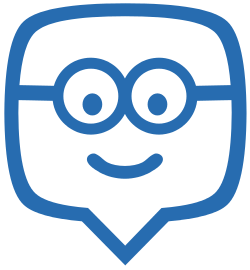
- 0 Comments
- Apr 3, 2014 10:00:00 AM
- Posted by Mike Nardine
- Topics: EdTech, National News
ROBOTSLAB WINS LAUNCHEDU COMPETITION AT SXSWEDU
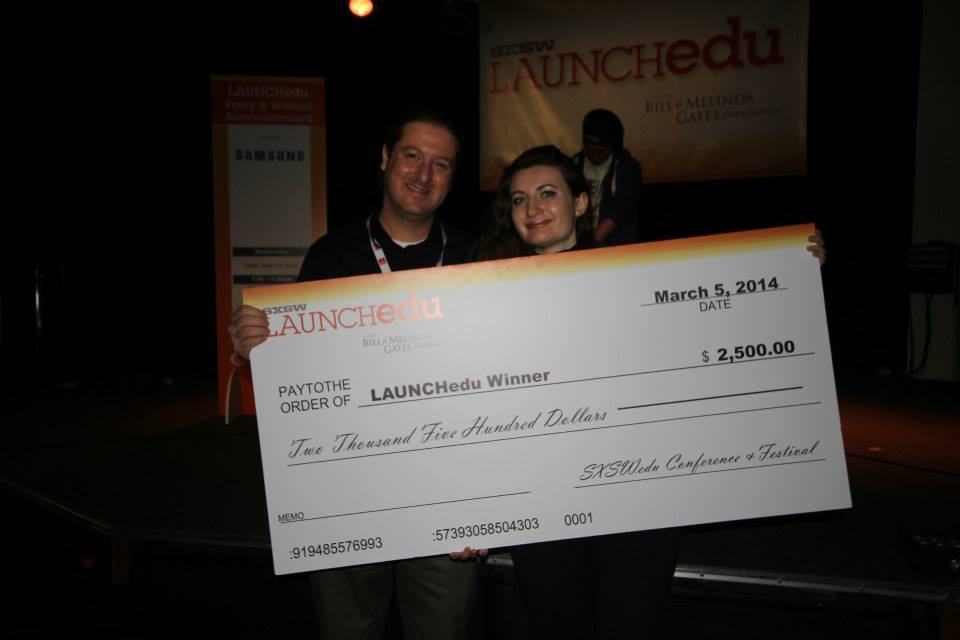
Austin, TX and San Francisco, CA – March 6, 2014 - A handpicked group of distinguished judges representing a cross section of in business, technology and education experts have selected RobotsLAB BOX as the winner of the LAUNCHedu Competition.
The competition began in August 2013 with approximately eighty applications. RobotsLAB was one of ten finalists chosen by the judges to present at SXSWedu on March 3. Following that presentation, RobotsLAB was one of three companies to be selected as a finalist. The final presentation was made in front of judges and a jam-packed room of educators on the morning of March 5. As part of the Educator Insights panel that discussed all ten competing companies, all three panelists cited RobotsLAB BOX as their favorite.
Based on the votes of attendees and judges, RobotsLAB BOX was ultimately chosen as the competition winner at the LAUNCHedu party on March 5. Betsy Corcoran, CEO and Co-Founder of EdSurge presented the award to RobotsLAB CEO Elad Inbar.
- 0 Comments
- Mar 6, 2014 12:13:59 AM
- Posted by Anna Sandler
- Topics: Math, Pre-Calculus, Local News, EdTech, STEM, National News, Education, Awards, 21st Century Classroom, School, Student Engagement, Geometry,, Middle School, algebra,, International News
Insider's summary of the hour of code initiative
This email sent by Gary Page from California Education Department is a great wrap up from the 'coding week' which was a huge success!
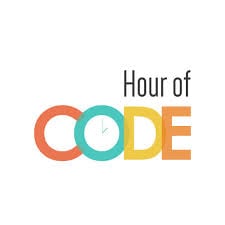
"
Teacher/Administrator:
Special thanks to all the teachers and administrators who took time to introduce students to coding during the recent Hour of Code week. The campaign brought attention to the need for all students to understand computational thinking and will help bring attention to education policy and decision makers on the need to make computer science “count” towards graduation.
In a single week, students at schools across the U.S. wrote 500,000,000 lines of code as part of Computer Science Education Week, organizers said.
- 0 Comments
- Jan 17, 2014 3:30:00 PM
- Posted by Charles Nimrad
- Topics: STEM, National News, Education, Computer Science, code, School, Student Engagement
To learn algebra secret way to student hearts
It's not a big secret, committed teachers have been aware of this forever. The best way to get students to learn anything about a subject is to find out what they are interested in and then show them how what interests them relates to the subject the teacher hopes to teach them. But like most things we believe instinctively it is always nice to find scientific proof for our beliefs.
Recently researchers using a Carnegie Learning software called cognitive tutor put high school students in two distinct groups to study Algebra. In one group were the students whose backgrounds had been researched in order to discover their personal interests. Stuff like music, movies and sports. These students received their algebra with lesson plans attuned to their personal interests. The second group was taught in the good old way math has always been taught, from a book and with no attention paid to the kids real lives. Can you guess what those researchers discovered? Exactly!
- 0 Comments
- Dec 23, 2013 12:53:58 PM
- Posted by Charles Nimrad
- Topics: Math, National News, Education, Student Engagement, algebra,
Will you teach with an educational cockroach robot?
For those of you--and unfortunately that includes most of us--who were unable to get over to Europe during European Robotics Week 2013, November 25th to December 1, you missed quite a show. Just perusing the event list on the Internet was a daunting task! Imagine attending over 300 events across the continent, from an educational reach-out titled "Robots are Coming-Are You Ready?" in Helsinki, Finland on the north to a robotics workshop in Nicosia, Cyprus on the south; and from a lab tour and workshop in Ankara, Turkey near the Black Sea, to an event in Mayo, Ireland in the Atlantic called the "First Lego League Event 21".
- 0 Comments
- Dec 10, 2013 10:53:20 PM
- Posted by Mike Nardine
- Topics: Robotics, National News
ROBOTSLAB NAMED WINNER OF THE RBR GAME CHANGER AWARDS
RobotsLAB BOX recognized for the innovation, creativity and delivery of a “Game Changer product” in the education market.
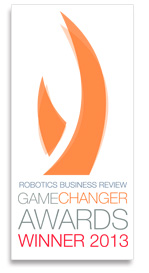 Santa Clara, CA, Wednesday, October 23rd 2013 - A panel of distinguished experts from NASA’s JPL, universities around the world, the investment community and Robotics Business Review, chose RobotsLAB BOX to join an exclusive group of products recognized for outstanding achievements.
Santa Clara, CA, Wednesday, October 23rd 2013 - A panel of distinguished experts from NASA’s JPL, universities around the world, the investment community and Robotics Business Review, chose RobotsLAB BOX to join an exclusive group of products recognized for outstanding achievements.
The awarded product – RobotsLAB BOX, is a teaching-aid, designed to help educators demonstrate abstract concepts in math and science using robots.
RobotsLAB BOX won the Game Changer Award in the Education category, one of twelve categories honored by the Game Changers Awards. The distinguished awards are celebrating exceptional developments in technology, innovation, accessibility and delivery.
- 2 Comments
- Oct 23, 2013 5:07:00 PM
- Posted by Brendan Barnard
- Topics: Robotics, Local News, EdTech, STEM, National News, Awards, Press
GE GRANT PROVIDES HELPS MATH PROFICIENCY AND GRADUATION RATES

Unfortunately, almost everyone has a friend that didn’t graduate from high school. Sometimes this person excels with tests but never does their homework, it could be that friend’s home life makes school incredibly difficult to get through, or there’s the friend who lands an awesome job programming and decides they don’t need school anymore. There are many reasons for dropping out but a common factor is a lack of an understanding of basic education ideas, like math for example. GE understands this and has responded to this with the introduction of the GE Foundation's Developing Futures in Education program.
- 0 Comments
- Jul 2, 2013 4:00:00 PM
- Posted by Brendan Barnard
- Topics: Math, STEM, National News, Education
CONGRESS HELPS PROMOTE STEM EDUCATION AND WORKFORCE CAUCUS
Do you often have nightmares about your kids asking you to help them with their math homework? Do you see your child get out their graphing calculator and suddenly you’re scrambling for an excuse to leave the room? This is actually nothing new, so you’re not alone. Just like previous generations, parents of generation Zs are overwhelmed by the level of advanced skills their children can comfortably complete. But this is a good sign as the days of working on an assembly line have been replaced by working on network servers and the blueprints of tomorrow’s workforce demands a more educated population.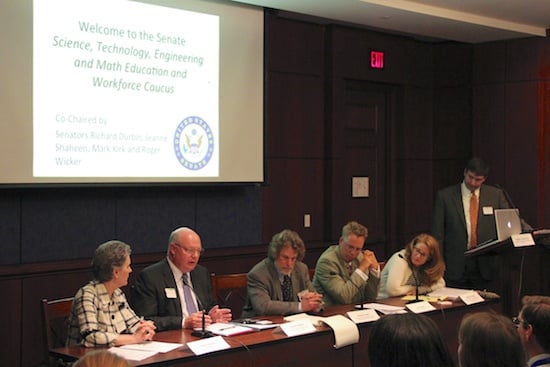
- 0 Comments
- Jun 24, 2013 1:03:00 PM
- Posted by Brendan Barnard
- Topics: STEM, National News, Education Politics
Relevant Posts
- Augmented Reality: A Tool for Teaching Students Robot Programming
- Fostering Innovation Through Youth Education in STEM and EdTech
- How Parents Can Foster STEM Learning Beyond the Classroom
- How Robotics Cultivates a Deep Understanding of Mathematics in Students
- RobotLAB Receives EDTech Chronicle 2023 ‘BESTIE’ Award for Landmark Partnership with American Samoa Dept. of Education.
Subscribe to Email Updates
-
I Want To Learn MoreADDITIONAL INFORMATION
